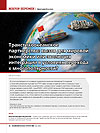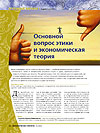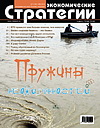Trans-Pacific Partnership: a Challenge for the World Economy or the Integration Evolution During Transition to Multipolarity
The article analyzes the main strategically important provisions of the Trans-Pacific Partnership (TPP) Agreement in the light of the US interests and through the prism of the other countries-participants, the real results of which can be expected by participants to the agreement, as well as the opposition of China, BRICS, SCO and the EAEU countries to the US will to lead the APEC region. The article proves that the proposed version of the TPP is not an evolutionary step within transition to multipolarity, but reflects the US foreign policy strategy, aimed at rewriting the terms of international community functioning, based on their own interests and the existing system of administrative-legal regulation of the US economy.









